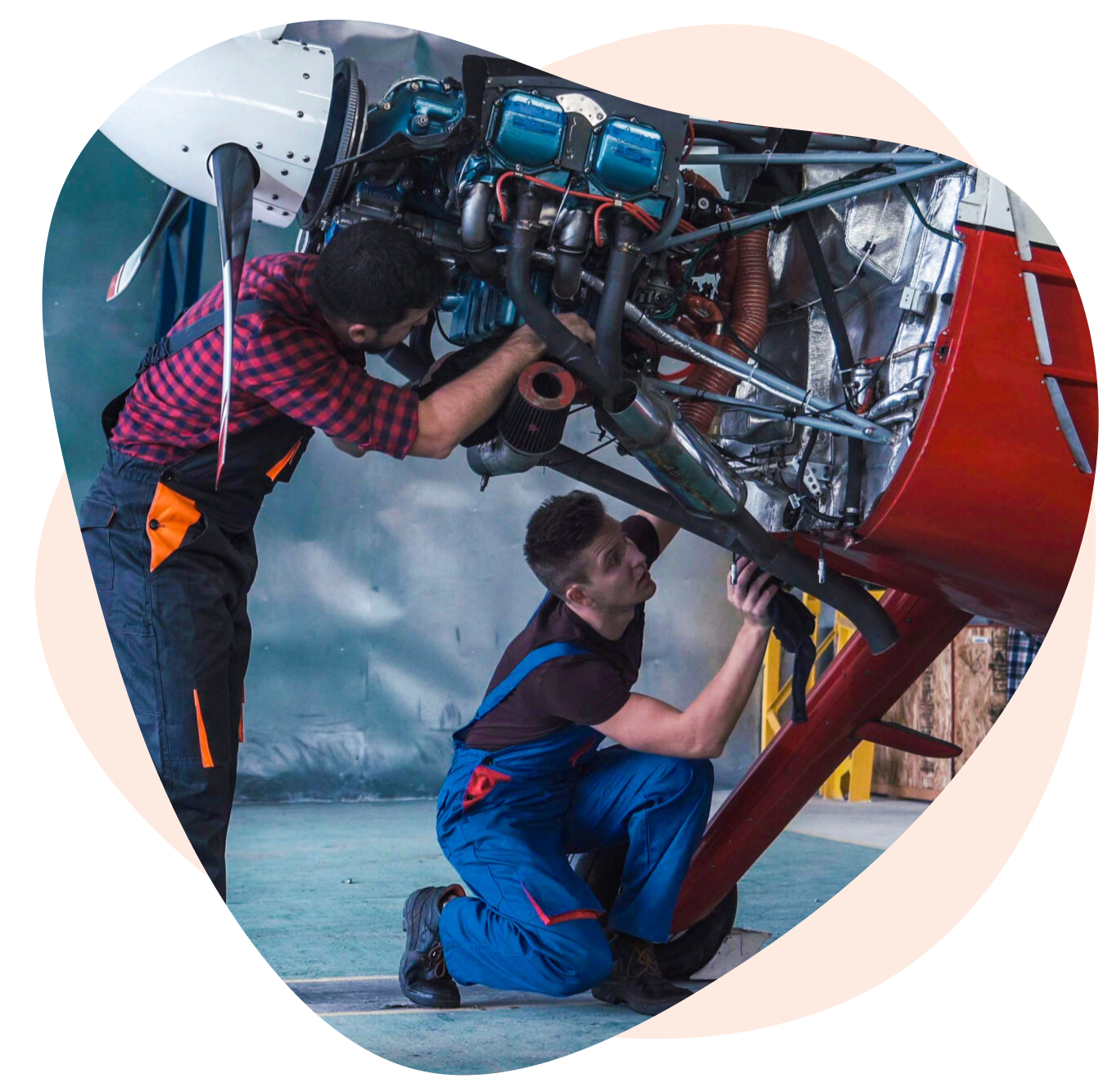On the ground
Mechanics
Aircraft maintenance technicians (AMT) and Aircraft mechanics repair, replace, and maintain aircraft parts and components. They also perform maintenance and functional checks on aircraft systems, such as hydraulic systems, pneumatic systems, electrical systems, and others.

There are many different types of aircraft mechanics, and each one usually specializes in one particular set of skills. For example, structural mechanics work on the frame of the aircraft, while avionics technicians work on the electrical systems and components.
Aircraft mechanics work in hangars operated by airlines, flight schools, corporations, repair stations or maintenance repair and overhaul facilities (MRO), and often times on the ramp where airplanes are parked. Mechanics need to work fast and efficiently, in order to adhere to high safety standards and meet demanding flight schedules. They can be subject to high noise levels and strenuous physical work.
Aircraft mechanics work in hangars operated by airlines, flight schools, corporations, repair stations or maintenance repair and overhaul facilities (MRO), and often times on the ramp where airplanes are parked. Mechanics need to work fast and efficiently, in order to adhere to high safety standards and meet demanding flight schedules. They can be subject to high noise levels and strenuous physical work.
While you do not need a training to be an aircraft mechanic, getting certified is highly recommended. Non-licensed mechanics can only work under supervision and cannot approve aviation articles for return to service.
It can take between 2-4 years to become an Aircraft Mechanic and in excess of 5 years to become a Certifying Engineer.
The main qualities needed are:
- Scientific and technical aptitude
- An accurate, methodical and systematic approach
- A strong sense of responsibility
- Good observation and problem solving skills
- Good concentration
- The ability to understand engineering drawings
- Agility and a head for heights
- A responsible approach to health and safety regulations
Here are the main sub-categories for mechanics in the aircraft sector:
Direct links:
Accounting – Aeronautic Engineer – Aeronautical System & Software Engineer – Air Traffic Controller – Airframe Mechanic – Airline Pilot – Avionics Technician – Attorney – Chemical Engineer – Commercial Pilot – Communication – Electrical Engineer – Engineer – Eurocontrol – Finance – Flight Attendant – Government Affairs Representative – Health & Safety Specialist – Human Resources – Management – Manufacturing Engineer – Mechanics – National ATC – Powerplant Mechanic
